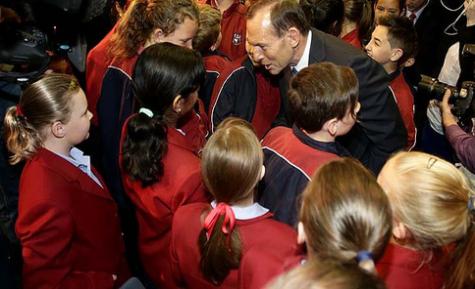The release on Sunday of the independent review of the Australian Curriculum has made 30 recommendations for changes to the national curriculum including changes to subjects in individual schools.
Key findings
The Review identified key areas where modification is required, namely that:
-
A need for fewer subjects, especially in primary school education, with a focus instead on literacy and numeracy.
-
A renewed focus on monitoring students' progress.
- Gaps have been uncovered in the content of each subject.
- A failure to adequately cater to students with disabilities.
- The curriculum is too complicated for parents to understand.
- Cross-curriculum priorities should not be incorporated into every subject.
- The curriculum is not balanced and a need for greater emphasis on morals, values and spirituality.
- Governance changes are required to the Australian Curriculum, Assessment and Reporting Authority (ACARA).
“The Review confirms what all education ministers are hearing from parents and teachers that there’s simply too much to try to learn, and students and teachers are swamped,” said Federal Education Minister, Christopher Pyne.
He said the review’s recommendations are an opportunity to get the curriculum that he and his state and territory counterparts want.
“I think the states and territories will believe [the review] is a step forward in a positive direction,” he said.
But for some, the review – co-chaired by Queensland University Professor Ken Wiltshire and former teacher and Liberal Party staffer, now education consultant, Kevin Donnelly – is likely to reignite talk of ‘culture wars’ which first began when the now Foreign Minister, Julie Bishop, was Education Minister in the Howard Government.
The Review recommends ramping up the focus on Western civilisation and Australia's Judaeo-Christian heritage and scaling back emphasis on Indigenous history and Asia.
“There is a lack of balance as the curriculum, especially as a result of the cross-curriculum priorities, fails to adequately deal with the historical impact and significance of Western civilisation and Australia’s Judeo-Christian heritage and values and beliefs,” the report notes.
It also states that it was a mistake to embed cross-curriculum priorities of Sustainability, Asia and Australia’s engagement with Asia and Aboriginal and Torres Strait Islander Histories across the whole curriculum, and it calls for greater emphasis on the democratic underpinning of the British system of government to Australia's development.
Australian Education Union
“This entire exercise has been a distraction from the Abbott Government’s abandoning of needs-based Gonski funding agreements and its refusal to properly fund schools,” according to the Federal President of the Australian Education Union, Angela Gavrielatos.
“Schools don’t need curriculum reviews, they need to be properly funded to meet minimum resource standards, and be able to provide the support that students need to reach their full potential.”
Mr Gavrielatos says that Mr Pyne praised the curriculum review for recognising the needs of students with disability but he is also cutting $100 million from disability programs.
“This is typical of an attitude that tries to pretend funding of schools doesn’t matter,” Mr Gavrielatos said.
Academic educator
Emeritus Professor of Education at the University of Western Australia, Bill Louden, believes the Review is mostly balanced.
"It was a plesant surprise to see the current Australian Curriculum described as a 'significant achievement' considering the florid remarks made by the reviewers before they review began.
"The review offers a few of the expected free kicks about the loack of focus on Australia's Judeo-Christian heritage and the impact of Western civilisation, but on the whole it is a fair and thoughtful response."
Professor Louden says the widely held view is that the current curriculum is overcrowded, and that the compromises required to satisfy diverse stakeholders' views has not resulted in a truly national curriculum or an overarching framework.
Independent schools
The Chair of the Association of Heads of Independent Schools and Principal or Sydney's Barker College, Philip Heath, echoed the comments about overcrowding in the curriculum. He also referred to the "contrived nature" of cross-curriculum perspectives and the difficulty of their implementation at the school level.
But Mr Heath also warned of the nature of changes.
"Reducing content in primary education will be of great assistance, but we should not do so at the expense of curiousity and rigour," he said.
"Let children wonder as well as learn. Deeper is better than faster. Children need to be curious, audcacious in their imaginings and entrepreneurial in their hopes for the future."
Mr Health also believes that it is time to align systems such as NAPLAN and My School with the curriculum.
Catholic education
The recognition of the importance of the Judeo-Christian heritage of Australia is welcomed by Catholic education, according to the Executive Director of the National Catholic Education Commission (NCEC), Ross Fox.
Mr Fox said NCEC also welcome further efforts to shape the curriculum to support students with special needs.
“Catholic schools are educating more students with disability than ever before. Teachers are working to provide an inclusive learning environment for all students and the curriculum should support these efforts,” Mr Fox said.
What next?
Mr Pyne said all education ministers will consider the report and the Abbott Government’s initial response at the Education Council of state and territory education ministers in December.
“I would like to see most of it adopted. There is nothing in it that I can see that the states and territories would baulked because nothing is trying to drive a political agenda,” Mr Pyne said.
Comment is not yet available from states or territories. However, they are not likely to agree to no longer being represented on ACARA, which is one of the Review's 30 recommendations.
To see the final report or for more information, visit: http://www.studentsfirst.gov.au/review-australian-curriculum



















__small.png)










